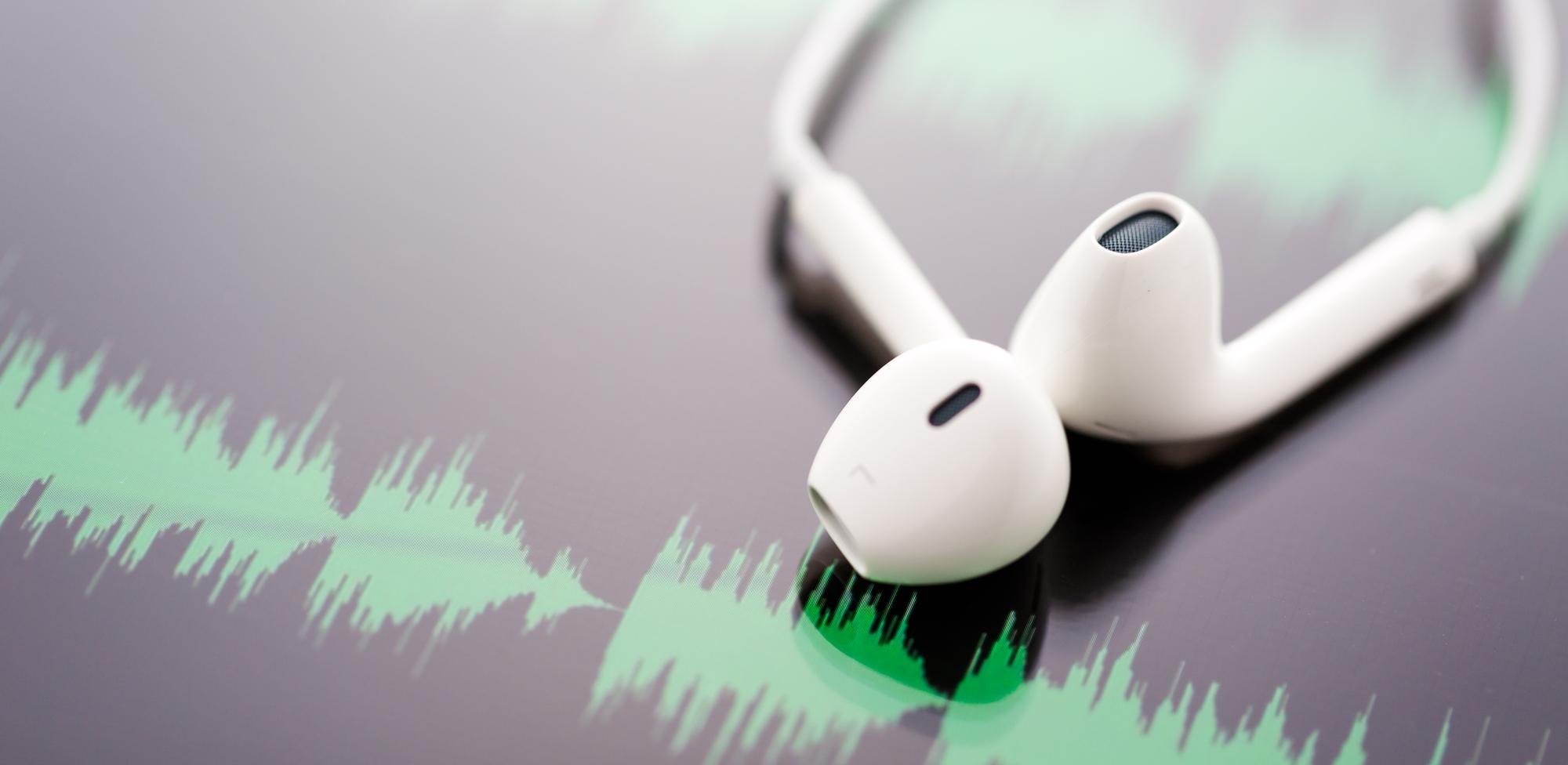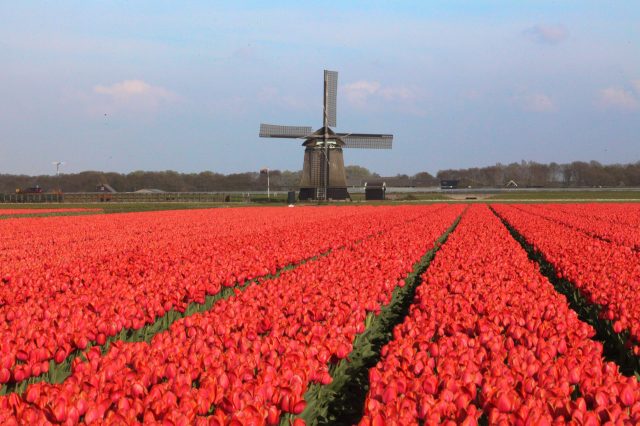General view of Tulip Bulb fields in Lisse, The Netherlands. Curtis Hilbun/AFF/PA Images

America is the world’s biggest exporter of food, but which country comes next? Somewhere with vast tracts of fertile land and a long growing season, one would presume. Brazil maybe, or China. Looking closer to home, what about France, Spain or Italy?
Those would be good guesses, but as Frank Viviano reports for National Geographic, the correct answer is somewhere much smaller, colder and darker – the Netherlands:
“The Netherlands is a small, densely populated country, with more than 1,300 inhabitants per square mile. It’s bereft of almost every resource long thought to be necessary for large-scale agriculture. Yet it’s the globe’s number two exporter of food as measured by value, second only to the United States, which has 270 times its landmass. How on Earth have the Dutch done it?”
There’s some pretty intensive agriculture involved; not least within the country’s “extraordinary greenhouse complexes, some of them covering 175 acres.” However, Holland is also putting a great effort into combining productivity with sustainability – a challenge of global significance. Viviano quotes Ernst van den Ende of WUR (“widely regarded as the world’s top agricultural research institution”):
“Put in bluntly apocalyptic terms, he says, the planet must produce ‘more food in the next four decades than all farmers in history have harvested over the past 8,000 years.’
“That’s because by 2050, the Earth will be home to as many as 10 billion people, up from today’s 7.5 billion. If massive increases in agricultural yield are not achieved, matched by massive decreases in the use of water and fossil fuels, a billion or more people may face starvation…”
From the unlikely vantage point of a potato field, Viviano looks into the future and shows how technology could save the day:
“…Dutch farmer Jacob van den Borne is… monitoring two drones—a driverless tractor roaming the fields and a quadcopter in the air—that provide detailed readings on soil chemistry, water content, nutrients, and growth, measuring the progress of every plant down to the individual potato. Van den Borne’s production numbers testify to the power of this ‘precision farming,’ as it’s known. The global average yield of potatoes per acre is about nine tons. Van den Borne’s fields reliably produce more than 20.”
However, productivity is as much about reducing inputs as increasing outputs:
“Almost two decades ago, the Dutch made a national commitment to sustainable agriculture under the rallying cry ‘Twice as much food using half as many resources.’ Since 2000, van den Borne and many of his fellow farmers have reduced dependence on water for key crops by as much as 90 percent. They’ve almost completely eliminated the use of chemical pesticides on plants in greenhouses, and since 2009 Dutch poultry and livestock producers have cut their use of antibiotics by as much as 60 percent.”
The idea that modern agriculture means copious use of artificial herbicides, pesticides, fertilisers, antibiotics and fossil fuels is increasingly out of date. Advanced technologies mean that we can reduce or eliminate our dependency agricultural poisons and pollutants.
Examples include the drone-enabled precision farming described above, and also biological pest control (using bugs to eat other bugs), geothermally heated greenhouses, and various forms of hydroponics. That of course is before we get to the potentially transformative impact of agricultural robots. But what about the fraught issue of genetically modified organisms? Is GM a necessary ingredient in the productive-but-sustainable future (as Chris Bullivant argued)?
Perhaps not. As Viviano explains, the Netherlands exports $1.7 billion worth of seeds every year, without marketing GMO products. Using the latest conventional plant breeding techniques they can develop productive new varieties much faster and more cheaply (and less controversially) than if they used transgenic techniques.
In summary, both the anti-greens and the extreme greens are wrong: we don’t have to ride roughshod over nature, nor do we have to turn our backs on modernity. Instead of treating the soil as a mere substrate for our chemicals or sentient animals as if they were mere machines, we can use technology to feed the world without wrecking the planet.
The UnPacked podcast

If you enjoy Peter Franklin’s daily guide to the best thinking in global media then you might also enjoy the UnPacked podcast.
We launched this a couple of months ago as a weekly discussion of three of Peter’s posts.
Last week we decided to change the format and rather than group three topics and discussions within one weekly podcast, we’re now offering you shorter, more frequent briefings with just one topic each time.
Hopefully, if your time is short, this will allow you to more easily listen to the key subject areas of most interest to you.
PLEASE CLICK FOR MORE.
And PS – all of UnHerd’s audio and video output is gathered here.










Join the discussion
Join like minded readers that support our journalism by becoming a paid subscriber
To join the discussion in the comments, become a paid subscriber.
Join like minded readers that support our journalism, read unlimited articles and enjoy other subscriber-only benefits.
Subscribe